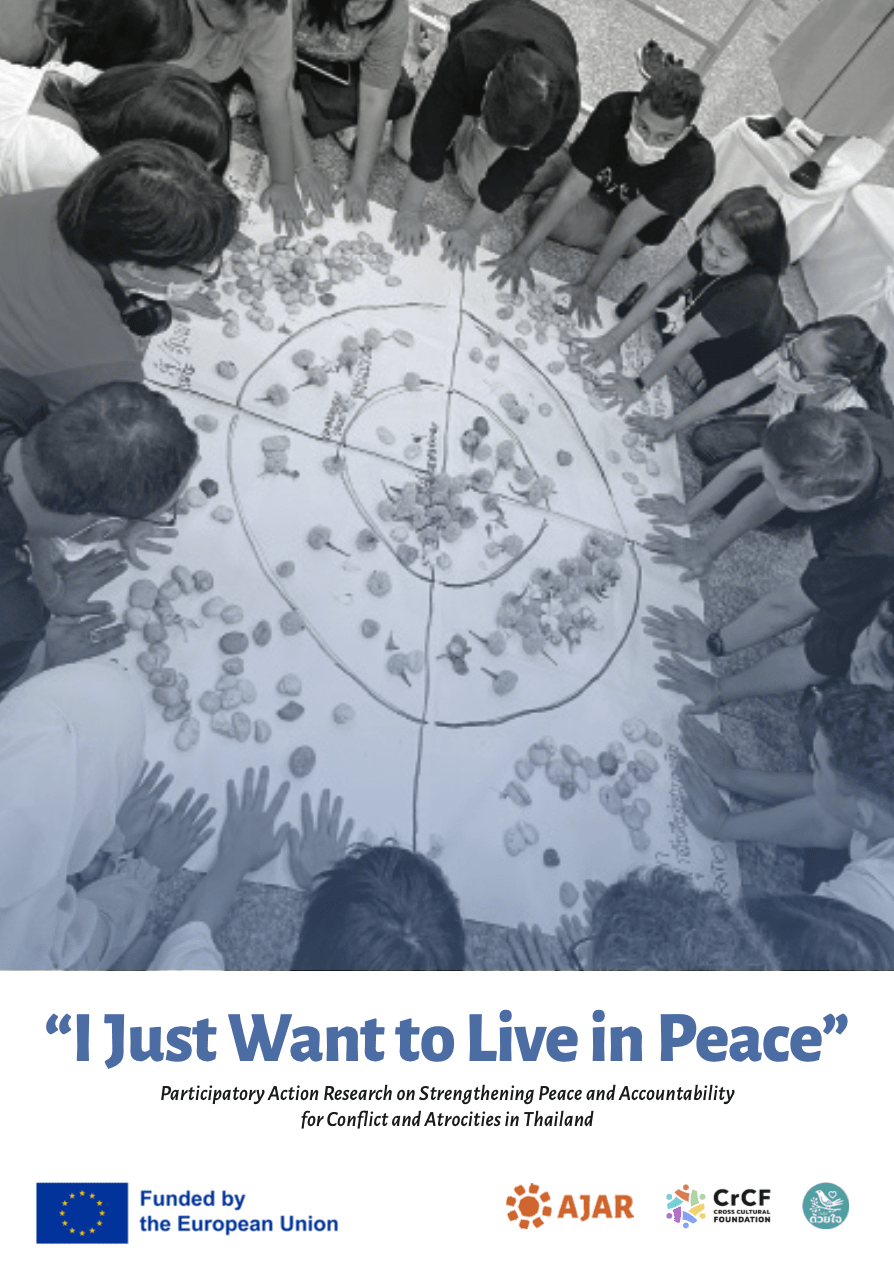Participatory Action Research on Strengthening Peace and Accountability for Conflict and Atrocities in Thailand
During the nineteenth century, while many countries in Asia and other continents were struggling for independence, rejecting colonial legacies and traditional ruling regimes, Thailand was ruled as an absolute monarchy. Although the country became a constitutional monarchy in the 1930s, the process of democratisation was led by the same powers and institutions responsible for the development of modern militarisation. Today, the military and monarchy retain significant power and influence in the country.
Thailand has a long history of serious human rights violations, in particular in the context of nationwide political uprisings as well as in the country’s southern border regions. Despite this, many past violations remain unacknowledged and unaddressed; indeed, in some areas the scale and severity of crimes remains grossly underreported. Recent years have seen an increasing understanding among civil society of the importance of transitional justice and peacebuilding. This has been supported by a new wave of understanding, particularly among younger generations, that lasting peace is predicated on dealing with the past.
Cross-Cultural Foundation (CrCF) working closely with Duay Jai Group and in collaboration with Asia Justice and Rights (AJAR) conducted participatory action research (PAR) with 43 participants from diverse backgrounds across Thailand, including the Deep South between July 2022 and February 2023. This research was part of a broader project aimed at better understanding human rights violations in the Asia-Pacific region and exploring how civil society organisations have responded to such violations by developing locally-led initiatives for sustainable peace and non-recurrence of violence.
